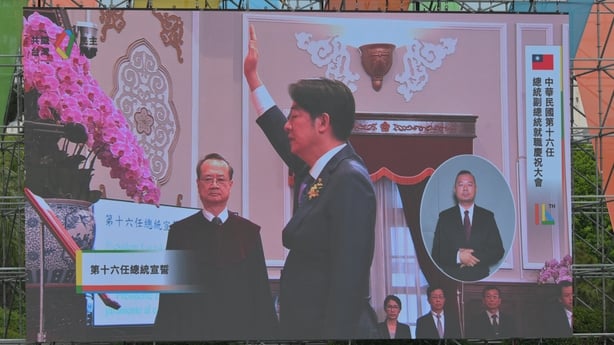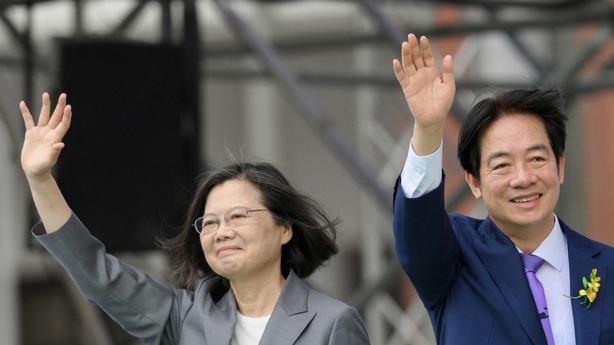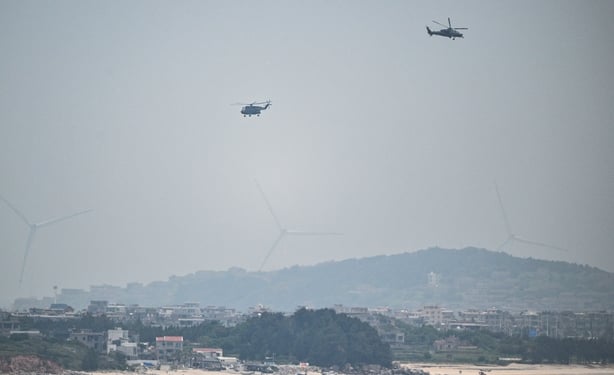Taiwan President Lai Ching-te has asked China to stop its military and political threats, saying in his inauguration speech that peace is the only choice and that Beijing had to respect the choice of the Taiwanese people.
Mr Lai, addressing the crowd outside the Japanese-colonial-era presidential office in central Taipei, repeated a call for talks with China, which views the proudly democratic island as its own territory and has never renounced the use of force to bring it under Beijing's control.
"I also want to urge China to stop intimidating Taiwan politically and militarily, and to take on the global responsibility with Taiwan to work hard on maintaining peace and stability across the Taiwan Strait and in the region, to ensure the world is without the fear of war breaking out," he said.
"We also want to declare this to the world: Taiwan makes no concessions on democracy and freedom. Peace is the only option and prosperity is our goal for long-term peace and stability."

There was no immediate reaction from China, which repeatedly called Mr Lai a "separatist" risking war in the run-up to his election in January.
Taiwan has faced pressure from China, including regular air force and navy activities near the island, since the election victory by the 64-year-old.
Mr Lai, who took over from Tsai Ing-wen having served as her vice president for the past four years, said people must be realistic about the threat and Taiwan must show its determination to defend itself.
"Fellow citizens, we have the ideal to pursue peace, but we must not have illusions," he said.
"Before China gives up using force to invade Taiwan, citizens must understand this: Even if we accept all of China's claims and give up our sovereignty, China's ambition to annex Taiwan will not disappear."

Mr Lai received loud applause after reiterating that the Republic of China, Taiwan's formal name, and the People's Republic of China are "not subordinate to each other", a line Ms Tsai also took.
Taiwan's defence ministry, in its daily report about Chinese military activities in the previous 24 hours, said six Chinese aircraft had crossed the Taiwan Strait's median line, which previously served as an unofficial boundary but that China says it does not recognise.
At least one of the aircraft got within 80km of the northern Taiwanese port city of Keelung, according to a map provided by the ministry.
In attendance at the ceremony are former US officials dispatched by President Joe Biden, politicians from Japan, Germany and Canada, and leaders from some of the 12 countries that still maintain formal diplomatic ties with Taiwan, such as Paraguay President Santiago Pena.

US Secretary of State Antony Blinken congratulated Mr Lai, saying the United States looked forward to working with him "to advance our shared interests and values, deepen our longstanding unofficial relationship, and maintain peace and stability across the Taiwan Strait".
Mr Lai wore a purple tie, representing a butterfly native to Taiwan, and a yellow pin on his lapel of mustard flowers, a common plant in fields across the island.
He received two seals symbolising his presidential power from the parliament speaker, the seal of Republic of China and the seal of honour, both brought to Taiwan after the republican government fled to Taiwan in 1949 after losing the Chinese civil war to Mao Zedong's Communists.

